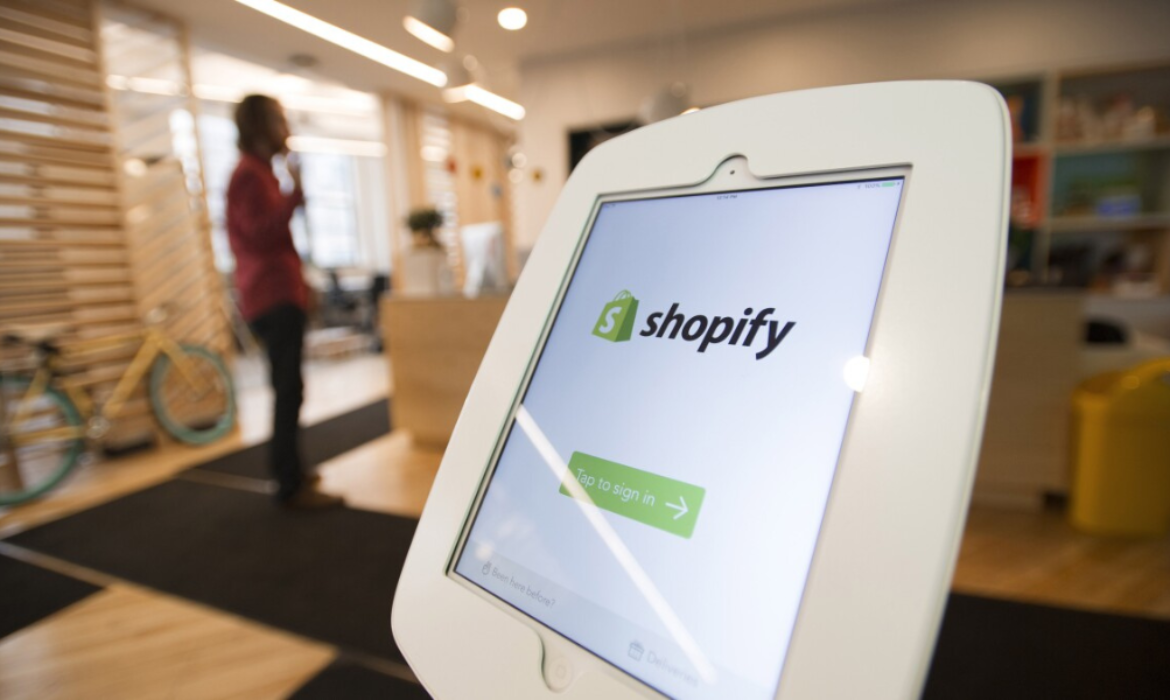Facebook’s “Shop” Feature Breaks The Wall Between Social Media And Ecommerce
Facebook has recently launched an option of “Shops” on its social networking platform. This Will allow its 2.6 billion users an opportunity to shop while browsing through their favorite social networking website.
As the demand for the e-commerce market rises, Facebook sees this as an opportunity and is ready to cash more money. Facebook “Shops” will provide room to merchants, SMB, and product companies to build a virtual store on Facebook. Facebook is calling it “Social commerce”.
“We want to give people a place to experience the joy of shopping versus the chore of buying. And we want to help small businesses adapt and make it easier for people to discover and shop for things they love,” Facebook said in a press release.
To make things easy and secure, the products that will appear on Facebook and Instagram as the ad will not be linked to any third-party website or server. Instead, it will be linked to a zippy on the Facebook portal which will take the user to a catalogue from where the user can choose or purchase the product. It will also show the saved card details if the user has ever purchased from Facebook or any of its applications.

Image credit- Facebook.
Live shopping experience:
Facebook will also provide live shopping features on its platform. According to Facebook, People have always been showcasing their products in live videos. Now, they can link these products with their store. The products will appear on the bottom of their live feed. By tapping on the product on their screen users can get all the details of the product. Live shopping feature will be available worldwide to its users!

Image credit – Facebook.

Image Credit – Facebook
“Shops” will be an integral part of the Facebook family. Users can save products in their cart on Facebook, and complete the checkout process on Instagram, or vice-versa. Facebook aims to target small vendors for his aspirations, and nearly 1 million users have registered to be a part of this experiment.
The other principal dissimilarity from past commerce enterprise is that Facebook “required the small businesses to go all-in on our tools,” Zuckerberg said.
The platform is free for everyone and Facebook is partnering with other tech giants to provide services at the back-end.

Image credit – Facebook.
Zuckerberg further stated, “Rather than charge for Shops, we know if it’s valuable they’ll want to bid more for ads.”
One of the key partnership deals is made with “Shopify”, According to Facebook, in just a few clicks you can operate a Facebook shops account from Shopify.
Shopify founder and CEO Tobi Lutke said, “It’s an incredible new reality in the retail space to have these tools natively in the Facebook platform,” he further mentioned, for small businesses it’s very crucial to find new customers.
CEO Tobi Lutke added, “Communications is incredibly important, for so long that’s been monopolized by large CPG brands on television.”
According to him instead of going to different levels of media and advertisement, sellers will be able to reach directly to the customer. “The DTC industry, as some people call it, really happened on top of Facebook and Shopify.”
With Facebook focusing more on small scale businesses adding Shopify having the strength of entrepreneurs, the model looks like a rival of Etsy and doesn’t seem to target retail chains like Target.

Image credit – Facebook.
According to the Zukerberg and Lutke analysis, this model will help to empower small-scale businesses. Helping those sellers who are genuine, and want to provide efficient services to their customers. The model will help small businesses to highlight their product in the market without expensive advertising. As most of the small scale businesses can’t afford the luxury of advertisement.

Image credit -Facebook
The users will also be able to earn rewards for their purchase. Rewards will be known as loyalty points. Facebook will motivate the sellers to provide these points to the customer on their purchase. This will help them to lure more customers. Users will be able to easily keep track of their loyalty points.
Shopify Revenue Surges As Pandemic Brings More Business Online
E-commerce platform and payment provider Shopify reported its first-quarter revenue that surpassed analysts’ estimates as more businesses moved online to survive coronavirus pandemic.
The Ottawa-based company Shopify said in a statement that sales grew by 47% to $470 million from the same quarter a year ago. However, analysts expected revenues to come to around $443 million
The key metric of gross merchandise volume which represents all goods sold on the platform 46% to 17.42 billion compared to the previous year. Again, beating analysts expected volume to $16.68 billion.
While sales were booming, the company still posted a net loss of $31.4 million or 27 cents a share. However, on an adjusted basis, the company posted a profit of $22.3 million or 19 cents per share for the first quarter of 2020 compared with an adjusted profit of $7.1 million or six cents per share for the same period last year.
CEO Tobi Lutke said in the quarterly release,
We are working as fast as we can to support our merchants by re-tooling our products to help them adapt to this new reality. Our goal is that, because Shopify exists, more entrepreneurs and small businesses will get through this.
Moving Online
Shopify reported a fall of 71% in gross merchandise volume through its store point-of-sale as stores shut down due to pandemic between March 31 and April 24. Companies also downgraded from Shopify Plus to lower-priced plans.
Also, it throws light on the drop in point-of-sale purchases from the brick and mortar stores questions the sustainability of online switch. It provides store based point-of-sale systems to merchants to operate from a single platform in order to maintain online store and sales.
It is closely observing consumer spending habits online and the ability of brick-and-mortar retail merchants to shift sales online. According to the company statement, Shopify retailers managed to replace 94% of their store volume with online sales.
Retail merchants are adapting quickly to social-distance selling, as 26% of our brick-and-mortar merchants in our English-speaking geographies are now using some form of local in-store/curbside pickup and delivery solution, compared to 2% at the end of February.
Chief technology officer Jean-Michel Lemieux noted the surging demand and had U.S. Black Friday-type of traffic as businesses have used Shopify to stay afloat as nationwide lockdown forces retail store closure across the world.
Impact of COVID-19
This pandemic has strained small and medium-sized businesses and accelerated the shift of buying habits to eCommerce. Shopify introduced many initiatives to support merchants and help entrepreneurs start a business online during the ongoing COVID-19 pandemic, including, offering tools to businesses to open their own digital store online across channels including social media.
An extended 90 day free trial for new sign-ups, gift card capabilities to merchants, and introduction to in-store or curbside pickup and delivery options for greater flexibility in the movement of inventory between different locations.
The company stated that the new stores created on the platform grew 62% between March 13 and April 24 versus the prior six weeks, driven by both first times and established sellers. But is also added,
It is unclear how many in this cohort will sustainably generate sales, which is the primary determinant of merchant longevity on our platform.
What analysts have to say
Few analysts still don’t see Shopify profitable enough in the future to justify the current stock price. They believe the rally is overdone.
Barry Schwartz, chief investment officer at Baskin Wealth in Toronto notes that as they grow, the company will face fierce competition from rival Amazon. He added,
They’re up against some very heavy hitters and I don’t think those guys are going to let Shopify win everything.
Buying it here at that valuation, you’re essentially saying, ‘I don’t care.’
Canaccord Genuity downgraded the stock, with a warning “we’re not entirely convinced” that gross merchandise volume “is as bulletproof as perceived.”



